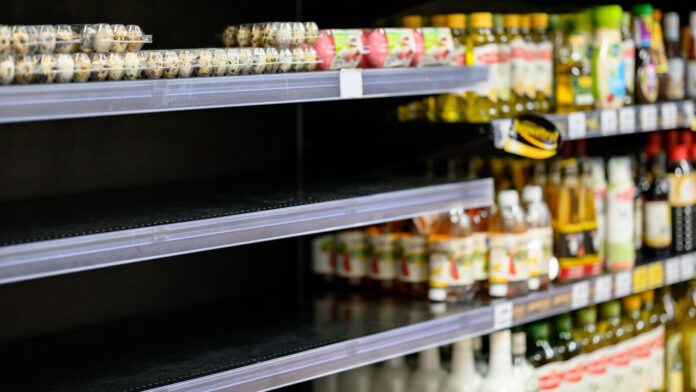Since the beginning of the war in Ukraine, we have witnessed repeated shortages in supermarkets in France. Sometimes mustard, sometimes meat, the products concerned are numerous and change regularly. But the war in Eastern Europe is not the only cause of these stockouts. Indeed, climate change has led to severe weather anomalies in recent years. The drought, in particular, contributed to the difficulties in supplying some supermarkets with meat. Indeed, the lack of rain has made the fodder intended for livestock feed more expensive and more difficult to access.
Among the products beating all records in terms of stockouts, we find sparkling water, as reported by our colleagues from Femme Actuelle. Fortunately, it is not an essential item for our diet, because for a year, it has displayed a difficulty of supply of almost 11%. In this case, it is the conflict in Ukraine that puts a spoke in the wheels of the producers: the preparation of sparkling water requires a fertilizer generally imported from Russia, as well as carbon dioxide, the supply of which is also compromise.
Difficulties in the supply of certain products, as well as the increase in production costs, not only lead to potential stock shortages, but also to a significant increase in prices, which adds to generalized inflation. Opinions on the outlook for consumers regarding inflation are divergent. François Villeroy de Galhau, Governor of the Banque de France, reportedly announced a halving of inflation by the end of 2023, as reported by Capital.
Thierry Cotillard, the man at the head of Intermarché, confided in our colleagues, and disagrees with the statements of the representative of the Banque de France. According to him, his forecast would be somewhat optimistic. However, it remains true that the cost of certain raw materials is on the way to falling, and that in the event of a significant drop in production costs, negotiations between distributors and producers could be reopened.
With regard to the stock-outs of certain products, it is moreover on the side of these famous negotiations that it is necessary to search.
These famous negotiations were held at the beginning of March. SMEs would have demanded price increases of 10%, between 6% and 8% were granted to them by large retailers. As for multinationals, the discussion was much more heated: some demanded increases of 16%, fully assuming that these increases were intended to boost their margins.
In some cases, this had the consequence of a lack of signing of contracts with certain groups, between Intermarché and Danone in particular. However, the director of this hypermarket sign affirms that mediation is underway, that the depots of his company were not yet short of Danone products and that it was out of the question that they definitively disappear from the shelves.
Supermarket shortages should therefore not make a big comeback. Especially since large retailers are in full deployment of their anti-inflation measures, hoping to attract more customers to their subsidiaries.
First of all, the director of Intermarché assured our colleagues that the major retailers would delay as much as possible the impact of the price increases planned by the negotiations on consumers. In addition, he highlights the introduction of the famous “anti-inflation basket”, concerning more than 500 private label products at Intermarché.
Moreover, this anti-inflationary measure is also extended to other brands of the group, such as Bricorama or Brico Cash, where you can benefit from discounts of up to 15% on a total of 150 products.















